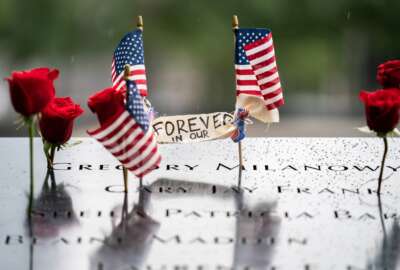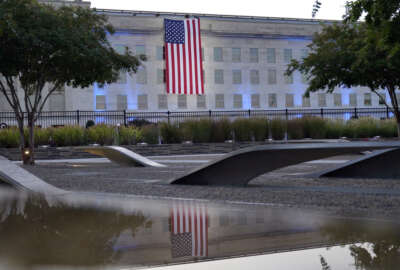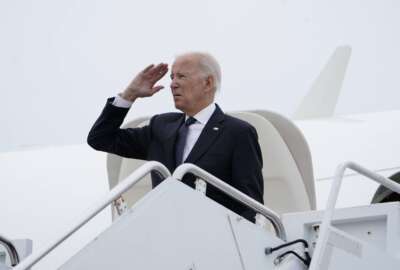I grew up in a suburb of New York City, and could remember when the World Trade Center Towers were being built, and twice visited them to sample the amazing view from the observation decks.
The towers weren’t very popular for a good while, as they were very different from the Empire State and other, older skyscrapers. After a while, though, people came to accept the towers, in all their brutal simplicity, as an integral part of NYC and part of any New Yorker’s cultural identity.
On 9/11/2001 I was serving overseas at a U.S. embassy. I was in a counseling session with one of my staff when one of my local employees knocked on the door and said that I had to see the TV news, there had been a terrible plane crash in New York. I said I would check it out as soon as I finished the meeting (I thought it might be something like the accidental crash of a military plane into the Empire State Building back in 1945).
At the end of the meeting, I went to our little cafeteria to get a jolt of coffee and to see what was going on in New York — I had no clue. I walked up to the cafeteria counter just in time to see, on the TV on the far wall, a smoking tower crumble and crash to the ground. That was my first hint of what was going on — I did not yet know the disaster unfolding on TV was the result of a deliberate, horrible act.
More than 30 people from my home county in southern New York State died that day — business people, office workers, cops and firefighters. To back up a bit, I had already served overseas in some dicey situations, but when my spouse and I took on those assignments, we were taking on the risks willingly in order to do our jobs and serve our country. We had the comfort of knowing that our family and friends back in the U.S. would not have the same kind of security and safety worries. That all changed on 9/11 — we could no longer be reasonably assured that our home folks would not be facing the same risks.
My wife’s niece had been working in one of the towers until her office was relocated to midtown Manhattan shortly before 9/11.
My father-in-law was a war veteran (who still had machine gun bullets in his body) and a naturalized American. He was immensely proud of his U.S. citizenship. He had been retired for some time, and not in the best of health, but to give back to his adoptive country, on 9/11 he was at his usual job in south Manhattan to help elderly folks in need. When the towers came down he was sent home. His public transit route was shut down, so he walked home 50 blocks. When my wife called and expressed her worry about his long trek and his health, he said he was fine, and that there were a lot of other people in New York who would be far more needful of help and support for a long time to come.
I’m old enough to remember our losses of JFK, MLK, and RFK. Immense events for all of us who were around in those years, but 9/11 was different. Different for the personal scale of the tragedy, and different because so many had what Churchill might have called their finest hour.
So many of us can’t avoid choking up when we try to talk about the amazing courage and generosity of the American people that day and in the following days. Few of us could be at Ground Zero or the Pentagon, but many of us have since stepped up in whatever small way that we could. My wife and I later would take on some hard assignments and weathered some hard experiences, trying to do our bit — and a lot of public servants were trying to do the same in their own way, many of them years after 9/11/2001.
We had some plenty of good models to follow, be they the people who were worked on The Pile, rescued the injured from the Pentagon, volunteered for any kind of public service, or those on one airplane simply said, “Let’s roll” — and did.
—Anonymous
Copyright
© 2024 Federal News Network. All rights reserved. This website is not intended for users located within the European Economic Area.




